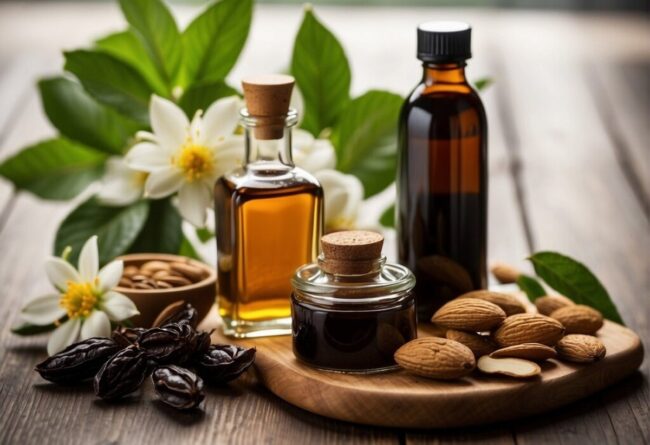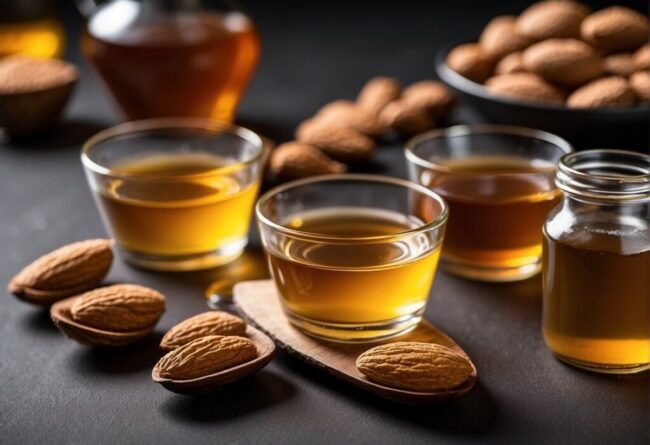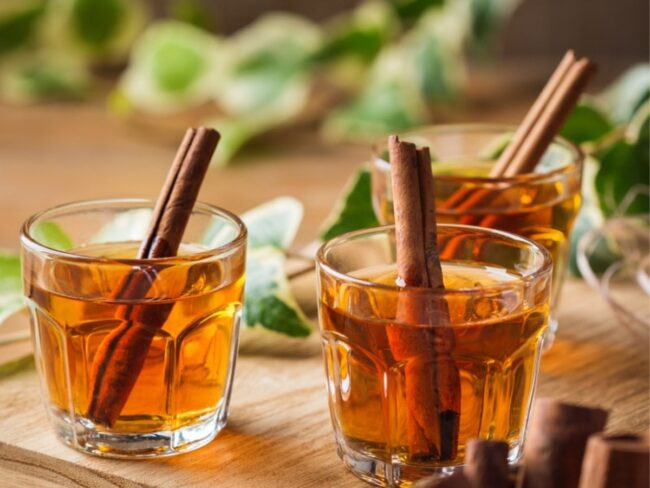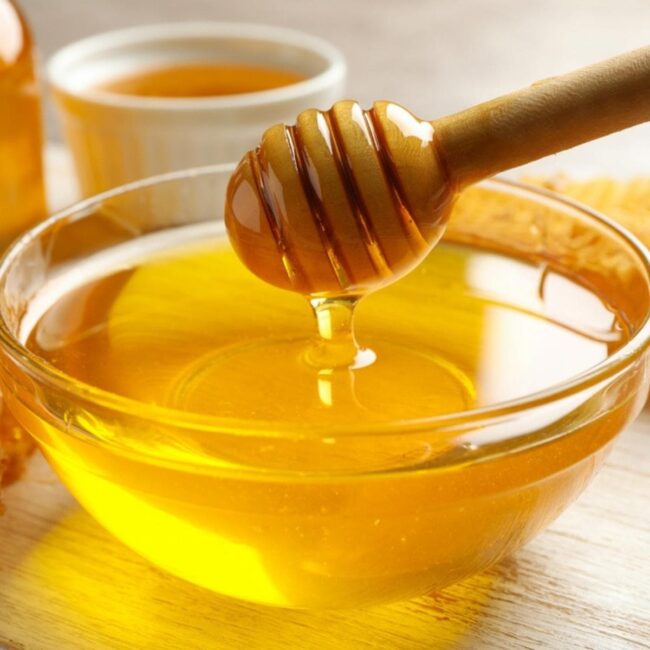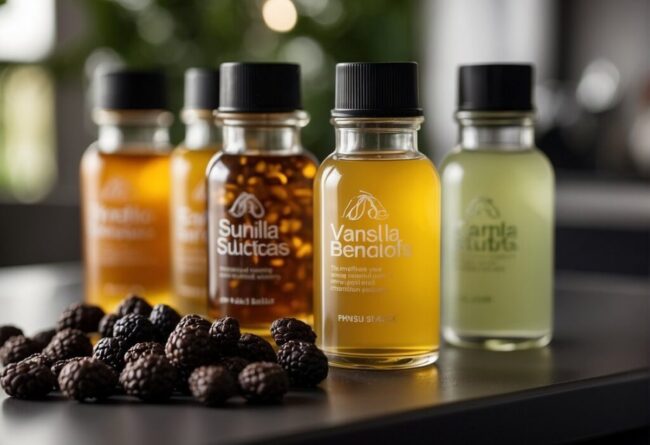6 Perfect Vanilla Extract Substitutes to Try
Vanilla extract substitutes bring sweetness and depth to recipes even when the original ingredient is missing.
Some alternatives provide the same fragrant warmth, while others introduce a subtle twist.
The best option depends on the dish, whether it's baked goods, beverages, or desserts.
A well-chosen substitute ensures the flavor remains inviting and familiar.
What Is Vanilla Extract?
The rich and warm flavor of vanilla extract comes from the careful process of soaking vanilla pods in a mix of alcohol and water.
This method draws out the essential compounds, including vanillin, which gives vanilla its unique taste.
Vanilla beans are seed pods from specific orchid species found mainly in Mexico, Central America, and Madagascar, where most of the world’s supply is cultivated.
Pure extracts must adhere to FDA standards by containing at least 35% alcohol alongside a minimum amount of bean per gallon for extraction.
In contrast to pure extracts, imitation products often use synthetic vanillin derived from sources like wood pulp; this results in a simpler flavor that misses the depth found in whole beans.
Homemade infusions reveal visible flecks from actual seeds within the pod while store-bought versions can range widely in color without those natural bits present.
Reasons to Replace Vanilla Extract
Choosing the right substitute for vanilla extract can enhance your culinary experience.
Various reasons may lead to this decision, such as not having vanilla extract readily available.
Its high cost often deters people from using it, especially since growing vanilla is labor-intensive and expensive.
Some may need alternatives because of the alcohol content in standard extracts, which isn't suitable for everyone due to personal or dietary choices.
For those with allergies, finding a substitute avoids synthetic ingredients that could trigger reactions.
Experimenting with different flavors might also encourage someone to seek out alternatives while still keeping a hint of vanilla in their dish.
Selecting an appropriate replacement will influence the final taste and texture of your recipe significantly.
A well-chosen alternative ensures that every dish remains delicious and enjoyable.
Alcohol-Based Cooking Alternatives
Alcohol-based alternatives enhance recipes with deep, rich flavors. They provide complexity in marinades, sauces, and desserts.
Bourbon and Brandy Drinks
Bourbon and brandy shine as flavorful alternatives to vanilla extract, each bringing its own character to dishes.
Bourbon infuses a rich, smoky essence that enhances the overall taste of recipes.
When opting for brandy, expect a subtle fruitiness that can elevate baked goods in delightful ways.
Recipes remain uncomplicated with these substitutes since equal measurements apply for both spirits.
Next time you’re out of vanilla extract, consider reaching for bourbon or brandy instead; your culinary creations will benefit from their unique depth and warmth.
Rum and Other Drinks
Dark rum offers a rich and complex flavor that enhances desserts beautifully.
Its sweet and slightly spicy notes create a delightful twist, elevating your recipes in unexpected ways.
When you reach for this spirit as an alternative to vanilla extract, the results can surprise you with their depth.
Other spirits or liqueurs may also work wonders depending on what you're baking or cooking; think creatively about flavors that complement your dish.
Using rum in equal parts keeps it straightforward while allowing room for experimentation in your kitchen adventures.
Alcohol-Free Cooking Replacements
Alcohol-free substitutes add depth to recipes without the use of alcohol. They offer rich flavors suitable for cooking and baking.
Dairy and Plant Milks
Vanilla-flavored milk enhances recipes with a gentle sweetness that elevates various dishes.
Using it in equal measure as a substitute for water or regular milk seamlessly infuses your creations with flavor.
Dairy options provide an alcohol-free twist, enriching desserts without overpowering them.
Plant-based varieties like almond, soy, or oat contribute their unique profiles while remaining naturally sweet and alcohol-free.
Why settle for ordinary when you can elevate your culinary experience with this simple change?
Citrus and Fruit Zest
Citrus zest offers a refreshing twist in baking, serving as a vibrant alternative to vanilla extract.
The natural oils found in fresh zest enhance the aroma and taste of your treats, creating an inviting experience for everyone who tries them.
Lemon or orange zest works beautifully in cookies and cakes; just grate it finely for the best results.
Grapefruit or lime zest can elevate lighter desserts, adding an unexpected zing that excites the palate.
Choosing this approach allows you to experiment with flavors while keeping things light and lively in your kitchen creations.
Natural Sweetener Replacements
Natural sweeteners as substitutes provide a healthier way to add sweetness to dishes. They bring different flavors and textures suited for various recipes.
Maple Syrup & Honey
Using pure maple syrup instead of vanilla extract introduces a deep, earthy sweetness that enhances baked goods beautifully.
This natural sweetener brings an added layer of flavor to your recipes, making them stand out.
The subtle richness complements everything from pancakes to cookies seamlessly.
Adjusting other liquids is key since maple syrup is less concentrated than vanilla extract; this small tweak keeps the texture just right.
Honey offers another intriguing option with its floral undertones and remarkable sweetness, creating a delightful twist in your favorite dishes while requiring careful consideration of sugar levels for balance.
Sugar Variations
Granulated sugar can serve as a practical alternative when vanilla extract is unavailable.
Adjusting the sweetness may require careful measurement to ensure your dish remains balanced.
Vanilla sugar, infused with aromatic vanilla flavor, offers an enticing twist to recipes that call for regular sugar.
This sweetener can be easily prepared at home or purchased ready-made from stores.
Keep in mind that tweaking your recipe might be necessary to achieve the perfect blend of flavors when substituting these sweeteners for vanilla extract.
Other Types of Flavor Extracts
Other types of flavor extracts add depth and aroma to recipes. Options range from vanilla and almond to citrus and floral notes.
Almond and Mint Flavor
Almond extract offers a rich, nutty essence that elevates various dishes.
Its concentrated nature means just half the amount is needed when swapping it for vanilla.
The unique flavor can enhance baked goods and frostings alike.
Peppermint extract introduces a refreshing kick, perfect for adding zing to desserts or beverages.
A careful touch is essential; too much can easily overshadow other delightful flavors in your recipes.
Additional Flavor Extracts
Lemon extract infuses desserts with a refreshing citrus essence, elevating everything from cakes to icings.
Orange extract offers an exciting burst of fruity flavor, perfect for brightening up pastries and frostings.
Maple extract delivers a rich sweetness reminiscent of cozy fall days, enhancing cookies and puddings alike.
Imitation vanilla flavor serves as an economical substitute for true vanilla while still capturing its aromatic qualities in various dishes.
Starting with just a drop or two allows you to fine-tune the flavors without overwhelming your creations; less can often be more when it comes to these concentrated extracts.

